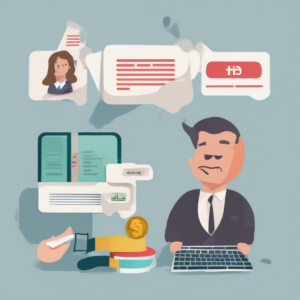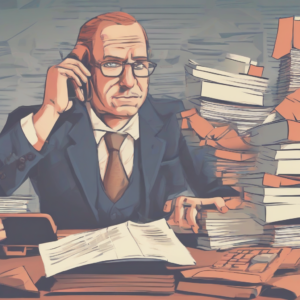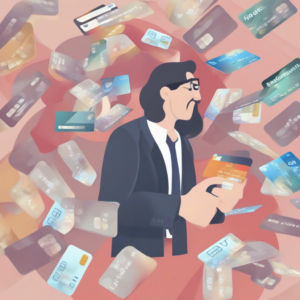Navigating Credit Card Use After Debt Settlement: A Comprehensive Guide
Debt settlement, while a viable option for managing overwhelming debt, leaves a significant mark on your credit report and raises questions about future credit card usage. Understanding the implications of debt settlement and how it affects your ability to obtain and use credit cards is crucial for rebuilding your financial health. This comprehensive guide explores the complexities of using credit cards post-settlement, outlining the potential challenges and offering strategies for navigating this crucial phase.
The Impact of Debt Settlement on Your Credit
Debt settlement, involving negotiating a lower payoff amount with your creditor than your outstanding balance, is generally considered a negative event by credit bureaus. This is because it signifies a failure to meet your financial obligations. The impact on your credit score is multi-faceted:
- Negative mark on your credit report: A “settled debt” will be recorded on your credit report, usually remaining for seven years from the date of settlement. This entry signifies to lenders that you defaulted on your payments, negatively impacting your creditworthiness.
- Credit score decrease: The “settled debt” entry directly contributes to a lower credit score. The extent of the decrease depends on various factors, including your overall credit history and the amount of the settled debt.
- Impact on credit applications: Lenders will see the settled debt, which can significantly reduce your chances of approval for new credit cards and loans. They may perceive you as a higher risk borrower.
- Higher interest rates: Even if you are approved for a new credit card after settlement, you are likely to receive a higher interest rate due to the perceived increased risk.
- Limited credit availability: Lenders might offer lower credit limits or restrict your access to certain credit products.
Can You Still Use Credit Cards After Debt Settlement?
Technically, yes, you can still use credit cards after debt settlement. However, the reality is far more nuanced. Your ability to obtain and effectively use credit cards depends on several factors:
- Your credit score: A significantly damaged credit score resulting from the settlement makes obtaining new credit cards challenging. Lenders assess your creditworthiness based on your credit score, and a low score often leads to rejection.
- Type of credit card: Secured credit cards, requiring a security deposit, are generally easier to obtain than unsecured credit cards after a debt settlement. These cards help rebuild credit by demonstrating responsible credit management.
- Credit history after settlement: Your post-settlement credit behavior significantly influences future credit card approvals. Demonstrating responsible use of any available credit, such as paying bills on time, can help rebuild your creditworthiness.
- Length of time since settlement: The longer the time elapsed since the settlement, the less impact it will have on your credit score and creditworthiness. Lenders usually weigh recent credit behavior more heavily.
- Credit card issuer’s policies: Different credit card issuers have different policies regarding credit applications from individuals with settled debts. Some may be more lenient than others.
Strategies for Obtaining and Using Credit Cards After Debt Settlement
Rebuilding your credit after debt settlement requires careful planning and consistent responsible financial behavior. Here are some effective strategies:
- Secured credit cards: Apply for a secured credit card, which requires a security deposit equal to or greater than your credit limit. This minimizes the lender’s risk and increases your chances of approval. Responsible use of a secured card can help rebuild your credit.
- Credit builder loans: Consider a credit builder loan, a small loan designed to help improve your credit score. Regular on-time payments build a positive credit history.
- Become an authorized user: If a friend or family member has good credit and is willing to add you as an authorized user on their credit card, this can positively impact your credit report. However, ensure that the cardholder maintains a responsible credit history.
- Monitor your credit report: Regularly check your credit report for errors and ensure the settled debt is accurately reported. Dispute any inaccuracies.
- Pay all bills on time: This is crucial for rebuilding your credit. Consistent on-time payments demonstrate responsible financial management.
- Keep credit utilization low: Aim to use less than 30% of your available credit limit. High credit utilization negatively impacts your credit score.
- Avoid applying for multiple credit cards at once: Multiple applications within a short period can negatively impact your credit score. Space out your applications.
- Consider a credit counseling agency: A reputable credit counseling agency can provide guidance and support in managing your finances and rebuilding your credit.
Understanding the Terms of Your New Credit Card
Before accepting any new credit card offer, carefully review the terms and conditions:
- Annual fees: Be aware of any annual fees and factor them into your budget.
- Interest rates: Expect higher interest rates due to your credit history. Negotiate for a lower rate if possible.
- Credit limit: Understand your credit limit and avoid exceeding it.
- Late payment fees: Be aware of any late payment fees and ensure you pay your bill on time to avoid these charges.
Long-Term Financial Planning After Debt Settlement
Debt settlement is a significant financial event. Long-term planning is essential to avoid repeating past mistakes:
- Create a budget: Develop a detailed budget to track your income and expenses and ensure you can afford your credit card payments.
- Emergency fund: Build an emergency fund to cover unexpected expenses and avoid resorting to credit cards for emergencies.
- Financial literacy: Improve your financial literacy through courses, books, or workshops to make informed financial decisions.
- Seek professional advice: Consult with a financial advisor for personalized guidance on managing your finances and rebuilding your credit.
Conclusion (Not included as per instructions)





